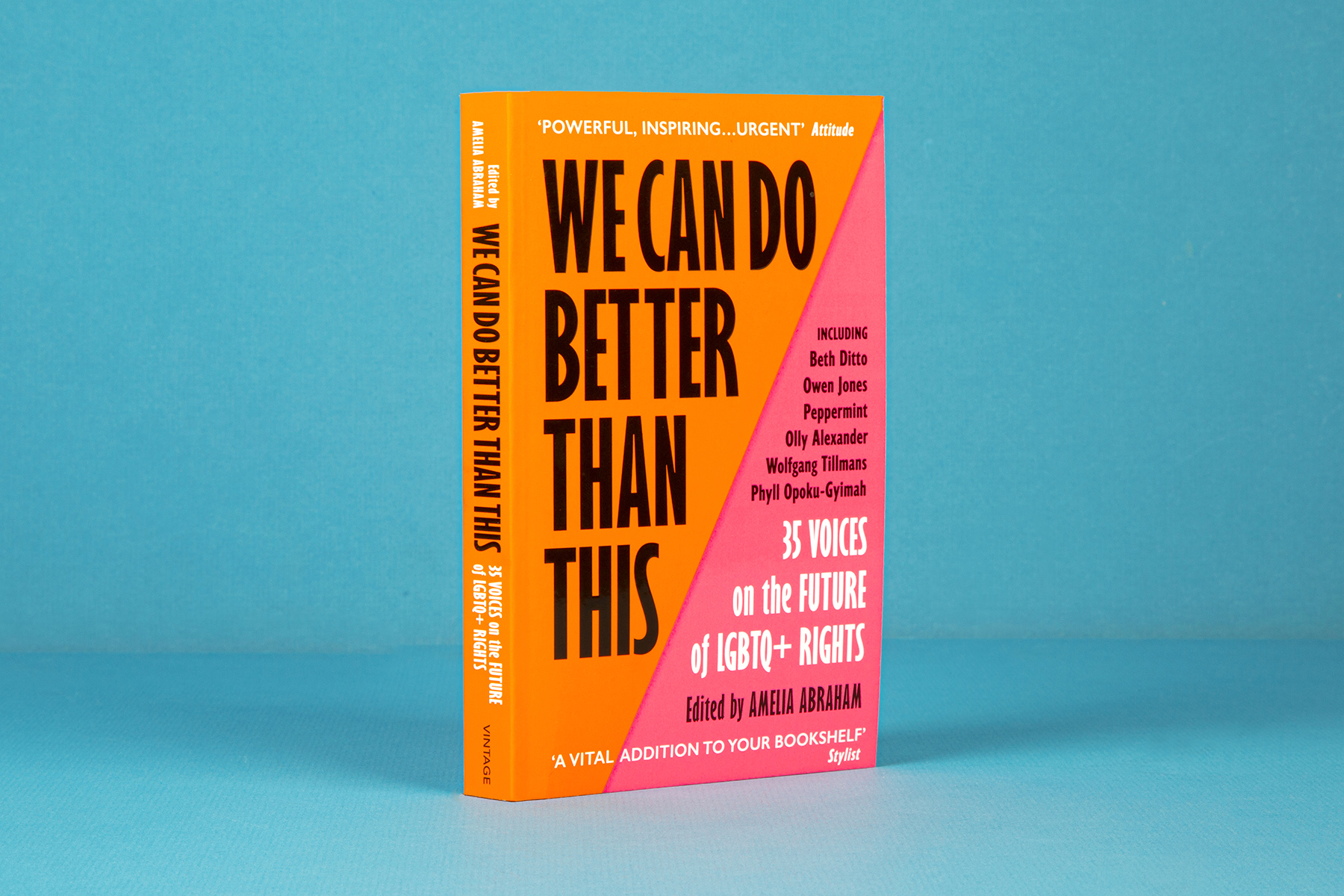- Home |
- Search Results |
- ‘There are so many amazing LGBTQ+ writers out there if you look for them’: Q&A with Amelia Abraham
‘There are so many amazing LGBTQ+ writers out there if you look for them’: Q&A with Amelia Abraham
The editor of We Can Do Better Than This on the importance of Pride, and her reading recommendations.

Amelia Abraham has long been interested in LGBTQ+ culture and social equality, as seen in her journalism for VICE, Refinery29 and Dazed, and her first book, Queer Intentions, which was a roving exploration of the mainstreaming of queer culture across the West.
Her latest book, We Can Do Better Than This, continues the conversation, bringing together thirty-five writers to share their stories and imagine the future of LGBTQ+ rights.
To celebrate the book’s paperback publication, we caught up with Amelia to talk about LGBTQ+ literature and history.
Have you read any excellent books recently?
Yes! Jack Parlett’s Fire Island: Love, Loss and Liberation in an American Paradise is a great cultural history of the New York island and the queer people who visited it, from James Baldwin to W. H. Auden to Carson McCullers.
I also loved Milk Fed by Melissa Broder. I read a lot of contemporary fiction by women; it’s a bonus when it’s queer, like this book.
What was the first book you read where you saw yourself represented? What did that mean for you?
Any books with more masculine girls. Probably a Jacqueline Wilson book. I remember seeing her in a shopping centre doing her shopping when I was about nine and asked her to sign her new book, which I had just bought, and she said yes. She is a legend, and I am very pleased she now talks openly about being gay.
More recently, Michelle Tea’s books. I aspire to be as cool as her.
Which books had the biggest impact on you growing up or as a young adult?
I was more into queer cinema than books. Reading sometimes felt like a chore, because I was studying English at school and then at university. But when I discovered the gay American writer and activist David Wojnarowicz’s books that changed – his words are beautiful and I have been interested in AIDS literature and literature about cruising since.
What significance have books had in your journey as a writer?
I read a lot of non-fiction, which opens my mind to new ideas and arguments. I wish I had time to read more broadly – or rather was able to make time (since I struggle to sit still and read for long)!
What do you think is the importance of LGBTQ+ representation like that seen in We Can Do Better Than This?
I hope it helps those of us with a queer community around us step out of our bubbles more, and see what queer people in other parts of the world are going through. For those without a queer community around them, I hope the reading experience provides one.
What do you want readers to gain from We Can Do Better Than This?
A book they can hand to allies who want to learn more, and a whole bunch of ideas about things we can do to make life better for queer people around the world; a conversation that goes beyond Pride.
If you could have chosen anyone from history, who would you have invited to contribute to this book?
Vito Russo, the AIDS activist and queer cinema expert who wrote The Celluloid Closet.
This year marks the fiftieth anniversary of Pride in London. Why do you think it is so important to remember and record the LGBTQ+ community’s stories and history?
Because it helps us to remember the point of Pride in the first place. I recently interviewed for the Guardian the people who held the first Pride in Britain, and their memories of the day reminded me that it should be a protest, yes, but also that they had fun with it – they dragged up, they made a lot of noise, they kissed en masse – they wanted to challenge onlookers. Pride should challenge people!
In another fifty years’ time, what are your hopes for LGBTQ+ representation in books and the media?
That it keeps proliferating – but honestly, there are so many amazing LGBTQ+ writers out there now if you look for them.